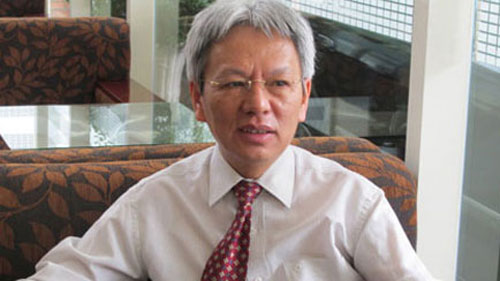Surrogacy law could fail intended benefactors The strict conditions laid out for surrrogacy in the law recently approved by the National Assembly opens a very narrow door for women incapable of child-bearing. After much discussion and debate, the National Assembly finally agreed to legalise surrogacy on humanitarian grounds. What is your opinion on this development? Nguyen Huy Quang, Head of the Legal Department of the Ministry of Health It is true that opinions were quite different on this issue. There were deputies who felt that the law should allow surrogacy, while others warned that such a move would have many legal and social consequences. The NA passed the law on humanitarian grounds. As a person who works in the legal field under the Ministry of Health, I think the move affirms a basic human right: the right to have children. Besides, Nguyen Si Dung, Vice Chairman of the National Assembly Office I think the humanitarian aspect has won this debate. However, it's only a modest victory. Although the door has been opened, it has opened narrowly. Only relatives are allowed to be surrogate mothers; you can't ask anyone else to do that for you. A mother can't be the surrogate mother for her daughter, and vice versa. Besides, there are a lot of conditions and requirements that you have to meet, or proof you have to produce, to be able to carry out the surrogacy legally.
Even in many developed countries, surrogacy on humanitarian grounds is still something that is not legalised. Will it be feasible to enforce the law in Huy Quang: The amended Law on Marriage and Family contains very detailed regulations about surrogacy for humanitarian purposes. I think the feasibility is high and we can mostly prevent surrogacy for commercial purposes. Si Dung: With such strict requirements and a narrow path, I don't think law enforcement would be a big problem. However, in reality, in The law was passed based on a majority vote, which means there are still many NA deputies who disagree with the choice to legalise surrogacy. Actually, we should keep in mind that reality always changes faster than the law. Surrogacy is something that has happened already, and is still going on. The fact that the amended Law on Marriage and Family allows surrogacy for humanitarian purposes does not mean that such activities are encouraged. In fact, the law has considerably narrowed down the eligibility of such activities. Anonymous 1 (a woman incapable of child bearing, who does not want to be named) Lawmakers should keep in mind that when couples come to the decision of surrogacy, they must have experienced many desperate situations. Having children is the most wonderful thing of all, and I know there are many couples in the country who have not had this great joy.
All we want, when we have decided that we will ask someone to be the surrogate mother, is that we are able to hold a baby in our hands. That wish, that desire is so strong that we, to be honest, don't care what the law allows and what it doesn't. Yes it's true that in some cases, asking a relative to be surrogate mother is feasible, but for many couples that might not be the case. So does that mean those couples have to follow the law and kill their wish of being real parents? As Vietnamese people, we always want a baby born from our own flesh and bones, so let's not talk about adopting a child who is not our blood. Anonymous2 (another woman incapable of child bearing) We are totally disappointed with the new law. We are a group of unlucky women who are not capable of bearing children. We want to look for good women who are in financial difficulties, who need some money and are willing to be surrogate mothers for us. It's a win-win solution – we desire babies very much, they can solve their financial problems. In my case, it's been very difficult to find someone who is suitable to be a surrogate mother for our babies. If I haven't been able to find out one so easily when we have such a large population in this country, I don't think it will be easier looking among the much smaller pool of my relatives. Moreover, we want the baby to belong only to us. But if we ask someone who is our relative to do so, we would feel like we owe them for the rest of our lives, and what the law can't regulate is the feeling between the surrogate mother and the baby. Although the law says the baby would legally be the child of the intended couples who gave their sperms and eggs, all those who have had babies naturally know how the string develops between the mother and the babies during the pregnancy. Thus, we want some stranger to do it for us, so that no further relationship need be maintained once we receive our babies. VNS/VNN |
↧
Article 5
↧
